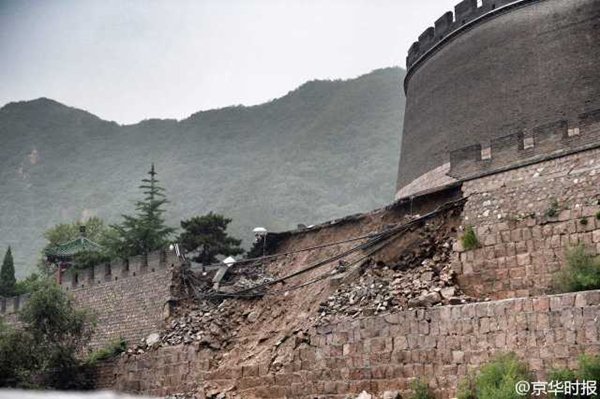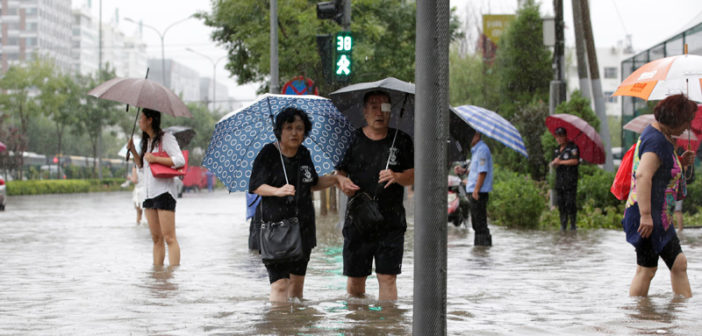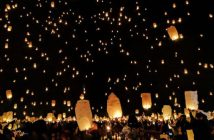One of the things which make living in Beijing so wonderful and so awful is that nothing happens in moderation. It’s roasting in summer, freezing in winter, everything is bigger, faster, noisier, smellier, crazier, and more crowded than anywhere else on earth.
And of course it’s dry here, drier than anywhere I’ve been that isn’t actually a desert, so dry that nasal douching is a thing. Well, had you ever heard of it before you moved here? It might go on in Hollywood, California, but there’s not much call for it in Hollywood, Birmingham.

(Hollywood, Birmingham. Brad and Angelina are just out of shot.)
So it was perhaps inevitable that when it decided to rain, we were not in for a refreshing summer shower, but days of torrential downpour which caused flooding, cancelled flights and part of the Great Wall itself to come crashing down.

Being British, I tend to scoff at rain, which gives me a cosy nostalgic glow for my soggy homeland. In my days as a Children’s Center manager, the staff once proposed that an outdoor activity be postponed due to a spring shower. “Nonsense! Just put the kids’ coats on,” I shouted, before uttering a phrase which was to become notorious. “They’re not going to dissolve!”
I am told that people learning English are still taught the phrase “it’s raining cats and dogs,” even though no actual Brit has said it for years, after it was outlawed by Parliament under the “Don’t Be a Square Daddio, Jive like a Hepcat” Act 1970. However we do have a rich vocabulary for rain, just as the Inuit are said to have fifty words for different kinds of snow. It can be a squall, a shower, a smattering, a sprinkling; it can spot, drizzle, bucket, hammer, or come down in stair rods.
Perhaps my favorite rain phrase is “Nice weather for ducks.” It suggests the sort of cheery, stiff-upper-lip stoicism in the face of adversity which we Brits like to imagine is our national characteristic, when in fact we moan constantly about almost everything.
Chinese too has its rain idioms. The most popular chengyu is 倾盆大雨 (qīngpéndàyǔ), which in my kindergarten Chinese translates to “tip bucket big rain.” There’s also the intriguing phrase 天要下雨娘要嫁人: “Heaven rains at will, mother marries at will.” This turns out to have a bizarre story behind it.
The ancient scholar Zhu Zaoyong petitioned the Emperor to set up an archway in tribute to the chastity of his widowed mother. When he went to tell her the good news though, she told him she was about to get married. This was not just embarrassing: since deceiving the Emperor was a capital offense, it was potentially fatal for poor old Zhu.
His mother gave him a skirt and told him to wash it, then hang it out to dry. “If it dries by morning, I’ll drop the plan. But if it’s still wet, then obviously Heaven wants me to get married.”
Instead of questioning his mother’s sanity in trusting her son’s life to laundry, Zhu dutifully obeyed. By evening the skirt was dry, but overnight it rained, and at dawn the cloth was soaking wet. Zhu went to the Emperor to confess all and accept his punishment. Fortunately, the Emperor spared him, and allowed the marriage to go ahead since it had been decreed by Heaven.
The lesson of this story is, I suppose, do as your mom tells you however batty she sounds, and everything will be OK. Which is something we can all get behind.
Photos: REUTERS via thehimalayantimes.com, David Stowell, Weibo




